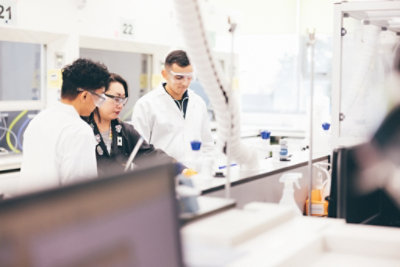Additional costs
As a student on this course, you should factor some additional costs into your budget alongside your tuition fees and living expenses, including: scientific calculator model kit (optional) You should be able to access most of the books you'll need through our libraries, though you may wish to purchase your own copies. Due to our commitment to sustainability, we don't print lecture notes but these are available digitally. You will be given £5 worth of printer credits a year. You are welcome to buy more credits if you need them. It costs 4p to print one black and white page.
Personal laptops are not compulsory as we have computer labs that are open 24 hours a day but you may want to consider one if you wish to work at home.
Scholarships and bursaries
The University of Nottingham offers a wide range of bursaries and scholarships. These funds can provide you with an additional source of non-repayable financial help.
International Students
We offer a range of international undergraduate scholarships for high-achieving international scholars who can put their Nottingham degree to great use in their careers.
Additional costs
As a student on this course, you should factor some additional costs into your budget alongside your tuition fees and living expenses, including: scientific calculator model kit (optional) You should be able to access most of the books you'll need through our libraries, though you may wish to purchase your own copies. Due to our commitment to sustainability, we don't print lecture notes but these are available digitally. You will be given £5 worth of printer credits a year. You are welcome to buy more credits if you need them. It costs 4p to print one black and white page.
Personal laptops are not compulsory as we have computer labs that are open 24 hours a day but you may want to consider one if you wish to work at home.
Scholarships and bursaries
The University of Nottingham offers a wide range of bursaries and scholarships. These funds can provide you with an additional source of non-repayable financial help.
Home Students*
Over one third of our UK students receive our means-tested core bursary, worth up to £1,000 a year. Full details can be found on our financial support pages.
* A 'home' student is one who meets certain UK residence criteria. These are the same criteria as apply to eligibility for home funding from Student Finance.






